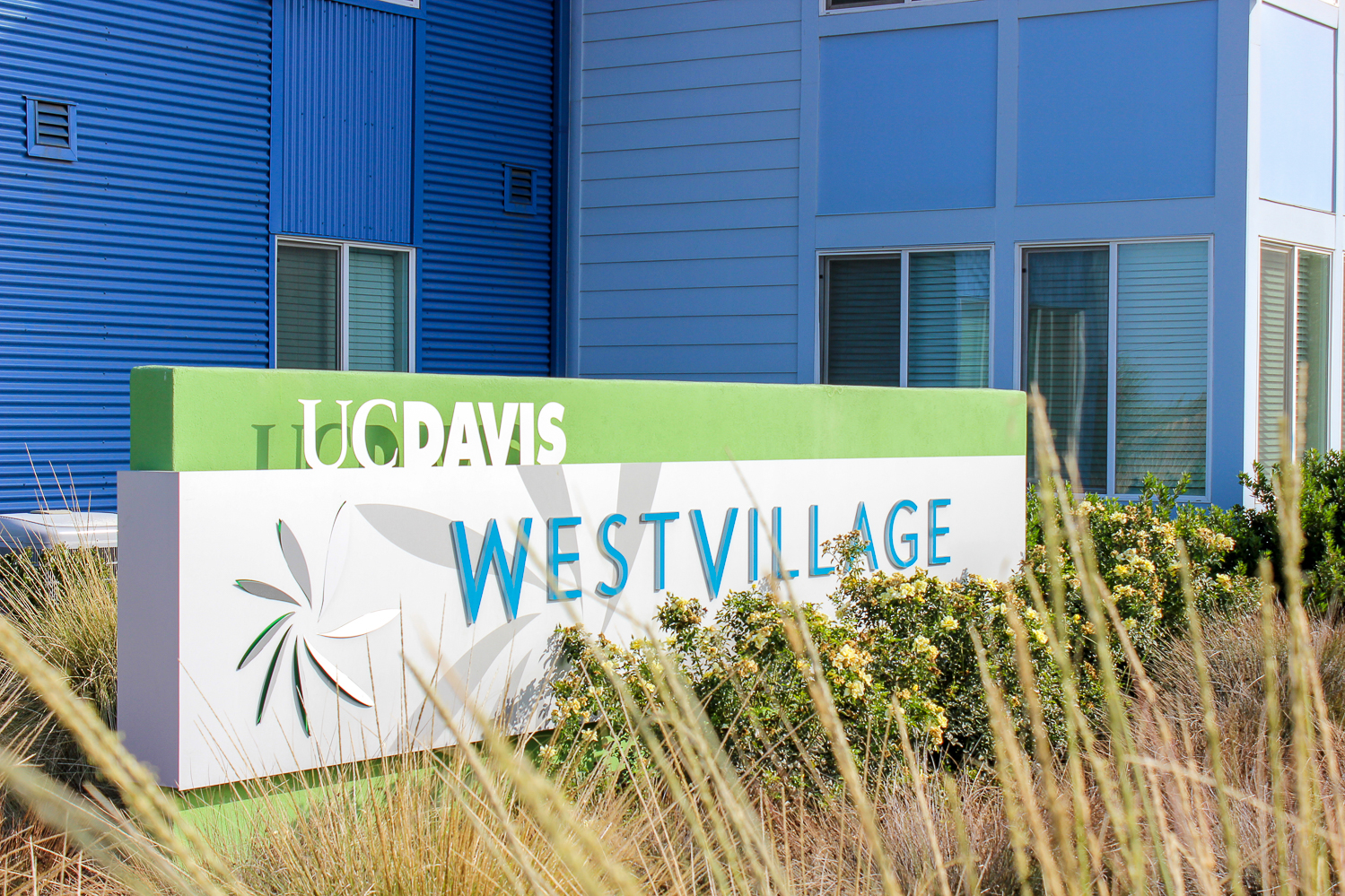
Project designed to provide housing for employees currently living outside of Davis, produce energy-saving homes close to campus
UC Davis announced over summer an upcoming project to build 50 single-family homes for faculty and staff at West Village by 2018.
The homes, which are all walking or biking distance from campus, will be sold at about 80 percent of the cost of comparable Davis homes. These homes will meet West Village’s ambitious efficiency and sustainability goals.
Jillian Ramsey, the assistant project manager, believes that this plan helps ease the issue of the expensive cost of living in Davis while continuing the pursuit for zero net energy housing.
“It is solving one of our biggest recruitment challenges,” Ramsey said. “Everyone has a challenge finding affordable homes here in Davis, so we hope this will encourage new faculty and staff to live close to campus. It will also model our sustainable growth progress, and that is really important to us.”
The problem is not unique to Davis; schools across the nation are struggling to hire and retain faculty members in cities where the cost of living is high.
Currently, the only university housing designed for faculty and staff is at Aggie Village, where there is an approximately 200-person waiting list for a complex that only sees a new vacancy every one or two years, on average.
Andy Fell, associate director of news and media relations at UC Davis, believes that this new project will attract potential professors and faculty employees to the university.
“What’s important is there is a need for housing in our area for faculty and staff,” Fell said. “Housing in Davis can be really expensive, so there is a kind of need for affordable housing that is biking or walking distance from campus that can be attractive and help lure in new staff.”
The project has been in the works since 1999, when the contractor who designed and constructed student housing at West Village also planned to incorporate single homes that could potentially be for faculty and staff. However, the project stalled due to various complications, including the housing market crash of 2009.
Last fall, the original contractor left before beginning work on the housing project, and the university terminated its master ground lease with West Village Community Partnership LLC, putting about 60 acres back under the university’s control.
Regenerating the project under its existing Long-Range Development Plan (LRDP), the university now can build up to 475 homes. The original project conceived under the LRDP included not only the 475 single-family homes, but capacity for 3,000 students, approximately 42,000 square feet of commercial space and a community college center with about 60,000 square feet of space. The Sacramento City College Davis Center has already been completed and running since 2011, making UC Davis the first UC campus to host a community college on its property.
Siegel & Strain Architects, an Emeryville-based firm which also worked on the Jess Jackson Sustainable Winery Building at UC Davis, has been selected to design the single-family homes. They are now working with the university, faculty and staff to develop initial design concepts. Once design and construction are completed, potential new residents will be chosen by a lottery process.
In order to receive input, the university is asking faculty and staff to fill out a survey addressing topics such as household composition, home design, energy efficiency and transportation and commute patterns.
BreAnda Northcutt, communications director at the Office of the Vice Chancellor and chief financial officer, says that both the faculty and staff have contributed to the housing design.
Northcutt believes this is the start of a project that will draw in new faculty and staff, and provide them with a welcoming community.
“This is an important project for us to really show our faculty and staff that we are understanding of the challenges within the housing market and we want to reach out to them,” Northcutt said. “There is so much yet to come. This is only the beginning.”
Written by: Demi Caceres — campus@theaggie.org









